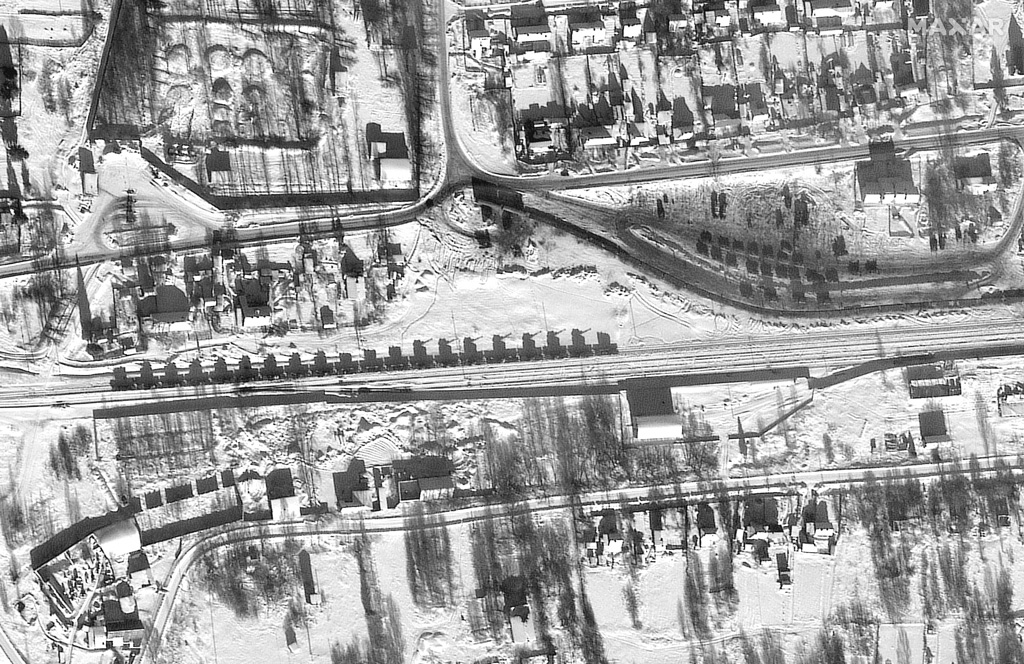The Ukrainian crisis continues to remain on the main agenda of international politics. While some countries such as the United States and the United Kingdom persistently claim that
the eruption of war at any time is very likely, many countries, including Ukraine and Russia, do not expect a large-scale war or war at all soon. Those who prefer the escalation of tension use a securitized discourse and threaten to impose sanctions; however, those who do not want the escalation of tension use a political discourse and offer diplomatic means to solve the problem.
There are three groups of states who will determine the future and direction of the Ukrainian crisis. The first group of countries in the Ukrainian crisis is the hawkish Western front, represented by the U.S. and the U.K. We should not forget that the current crisis erupted with the spread of intelligence in the U.S. that Russia would attack Ukraine at a time when the world public opinion was busy with the developments in Afghanistan and Kazakhstan.
U.S. and U.K. intentions
Then, what are the main objectives of the U.S. and the U.K. who want an escalation of tension in the Ukrainian crisis? The most important objective of these Western countries is Russia and its possible expansionism westward. The second objective is securing the membership of some former Soviet states such as Ukraine and Georgia and extending the NATO alliance to the Russian border. In return, Russia considers further NATO expansionism eastward as an imminent threat to its national security. Therefore, it considers NATO’s possible expansionism as a red line.
Considering the explanations made by the U.S. decision-makers, it seems that there are two contradictory expectations. On the one hand, they are ready to recognize some Russian gains in Ukraine, since they have clearly explained that they would not send ground troops to the area. On the other hand, they provide weapons and other military resources to Ukraine to damage Russia's power, which brings us to the point mentioned above. They want to make Russia pay a very high price and to bog Moscow down in the Ukrainian swamp.
The warring sides
The second group of countries in the Ukrainian crisis is the warring countries, namely Ukraine and Russia. It is clear that the two most negatively affected states will be these actors. That is, considering the limited involvement of the Western countries, the cost of war will be quite high for the two warring countries. Therefore, they have to be, and probably are, at least compared with the third-party states, very careful when taking any step that may lead to a hot conflict. The warring countries will not only be hit economically but also politically and militarily, and their civilians will suffer greatly. Their vulnerable economic system may collapse, their domestic political system may destabilize, and their claims in international politics may remain unmet.
The Ukrainian side was shocked when, before punishing the Russian side, many Western countries took measures against Kyiv and punished their ally. After withdrawing their ambassadorial staff and recalling their citizens from the country, the companies of the Western countries have begun to cancel air transfer to and from Ukraine. However, the same Western countries and economic actors continue to work with the Russian economic players. In the end, Ukrainian politicians, journalists and civil society leaders have realized that their so-called supporters and allies are ready to leave them alone. In other words, Ukrainians know that they are the subject of negotiations between the two poles.
The Western front
The third group of states is the dovish
European front, namely members of the European Union. The U.S. wants to show that the EU members are bound and dependant on its security umbrella, i.e., the NATO alliance. However, the EU members, France and Germany in particular, who are trying to decrease their dependence on the U.S.' military power, think otherwise. Therefore, under the leadership of these two countries, the 25 EU members have initiated the process of creating a common European army, the Permanent Structured Cooperation (PESCO). As a result, the EU members have been trying to adopt a relatively moderate stance in the crisis.
Some member states such as Germany are among the countries that will be hit hard in case of an armed conflict in Ukraine due to their dependence on Russian energy resources and trade. Therefore, they have insistently tried to prevent the eruption of an armed conflict in the crisis.
It is hard to predict which side of the crisis, escalators or de-escalators of the tension, will win. Only time will tell which group of states will dominate the scene and the front line.
[Daily Sabah, February 16, 2022]







